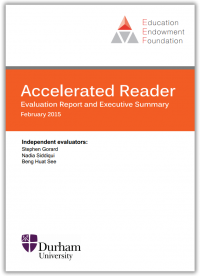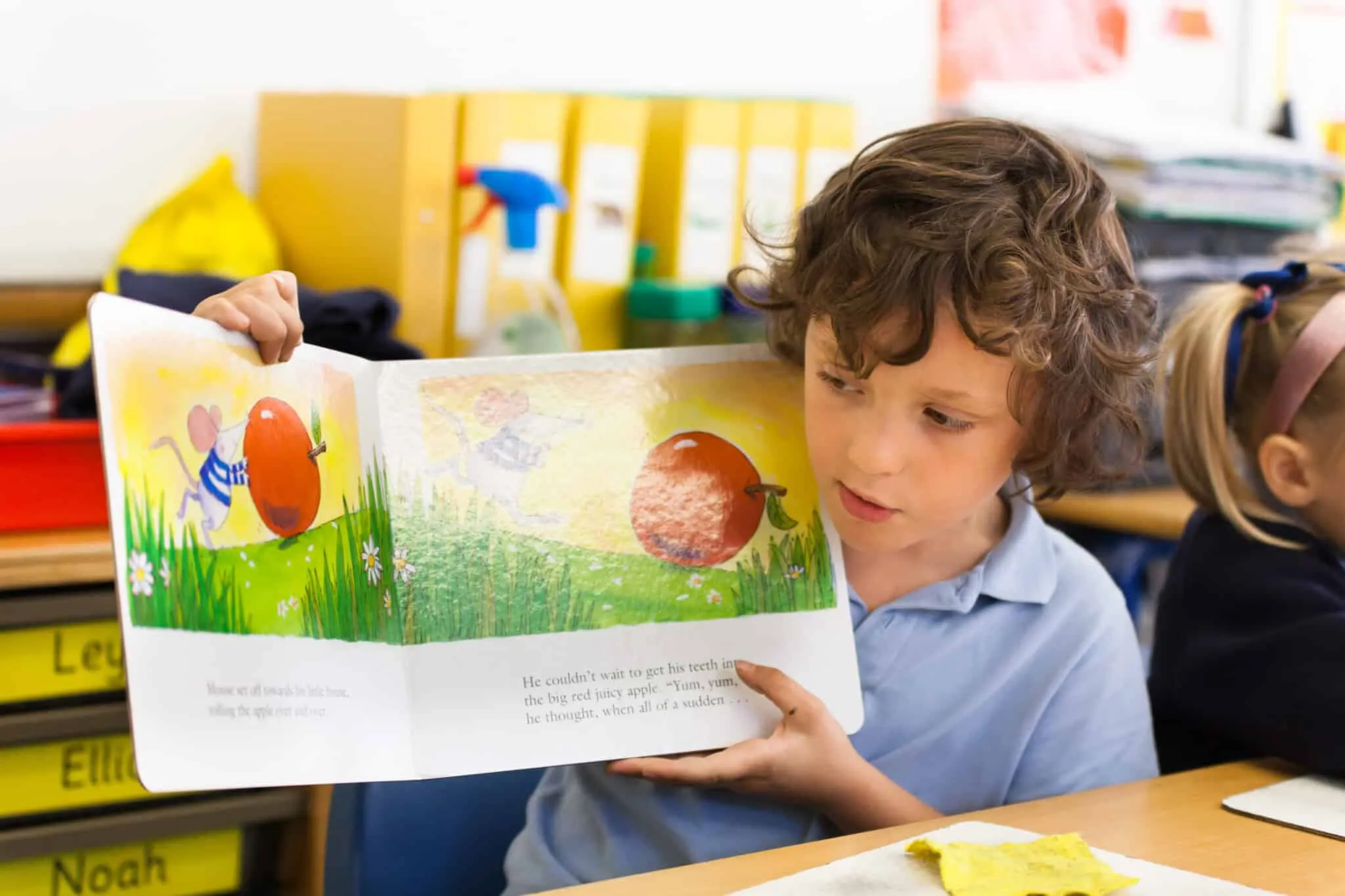February 13, 2015

The Education Endowment Foundation has published an independent study into the effectiveness of Accelerated Reader. It found that students using the programme have achieved an additional three months growth in their reading ages over 22 weeks.
The focus of the study was the use of AR as an intervention tool for under-achieving students in Year 7. It followed the progress of students in Year 7 at four schools who finished Key Stage 2 with English results less than a secure National Curriculum Level 4. Half of the qualifying students used Accelerated Reader for a total of 22 weeks, while the other half were a control group. The report suggests that, if replicated, the intervention has a good chance of delivering similar results in similar conditions.
Bridging the attainment gap
AR was found to be at least equally effective for students eligible for free school meals, so it makes an effective use of the Pupil Premium and other additional funding provided in order to narrow the gap in attainment between economically disadvantaged students and their peers.
Commenting on the publication of the report, EEF’s chief executive Kevan Collins said:
Good literacy and numeracy skills are essential to success both in secondary school and later in life so it’s hugely promising that today’s results have provided us with evidence for effective ways to do just that. With programmes like Accelerated Reader showing particularly positive effects, especially for low-income pupils, we are confident that the results of today’s reports will go some way in helping teachers to close their attainment gap.
Anecdotal evidence
The report contains anecdotal evidence of the programme’s contribution towards creating a culture of reading, with positive reactions from teachers, parents and the students involved in the programme themselves.
The school leaders reported that due to AR they needed to update their libraries with new books which pupils demanded to read because of the intervention.
Pupils enjoyed having the opportunity to carry around books they were interested in reading. Some of them also said that they liked reading books because in the end they got a chance to do quizzes on an iPad.
One school leader reported that they received encouraging remarks from parents when their child brought a book home and tried to read it independently. The teacher informed that this activity made some parents aware of the need to keep interesting books at home and to read or at least talk about a book of interest with their child.
It was observed that most staff involved became advocates for AR increasingly during the trial, and schools had already made arrangements to continue with and expand the use of AR for future years.
These findings are similar to those of the independent survey of students’ attitudes towards reading published by the National Literacy Trust: Accelerated Reader and Young People’s Reading.
About the EEF
The Education Endowment Foundation (EEF) is an independent grant-making charity dedicated to breaking the link between family income and educational achievement, ensuring that children from all backgrounds can fulfil their potential and make the most of their talents. The EEF’s role is to identify, develop, support and evaluate projects to raise the achievement of disadvantaged children in the country’s most challenging schools. It has a particular focus on innovation and on scaling-up projects which are cost effective and replicable. Among its guiding principles is that “proving what works is at the heart of everything we do”. Its aim is to make substantial grants to projects which can be robustly evaluated and to organisations that it can effectively support.
Further details of the report can be found on the Education Endowment Foundation website.
Find out more
To find out more about how Accelerated Reader helps students to make rapid progress, speak to a member of our team on 020 7184 4040 or email answers@renlearn.co.uk. Alternatively, Contact Us online with your enquiry.
